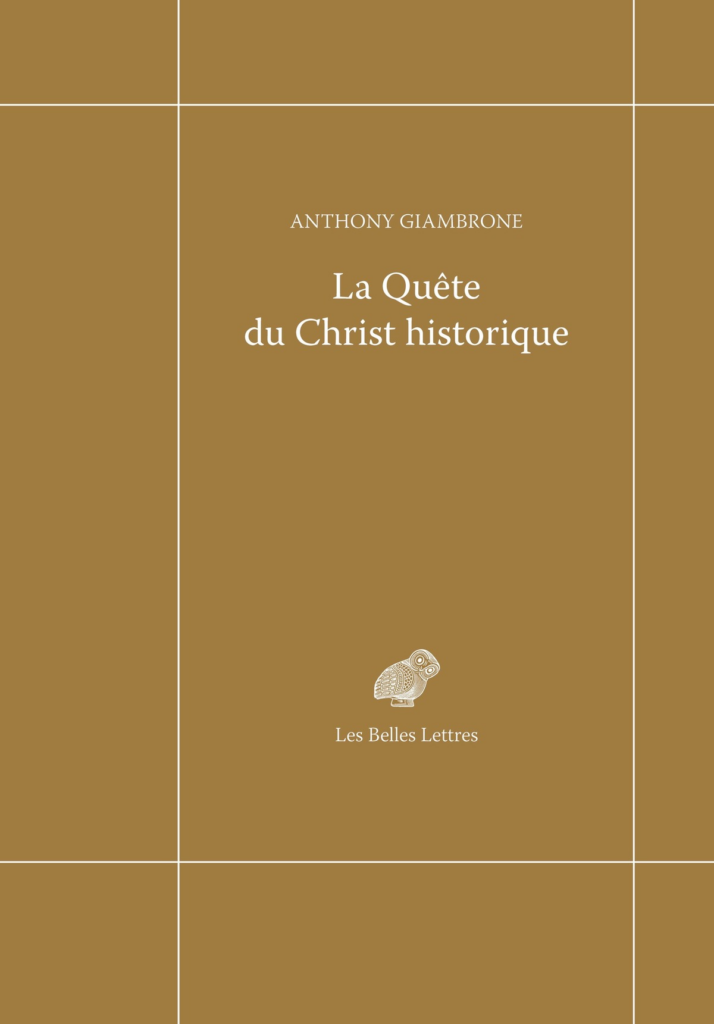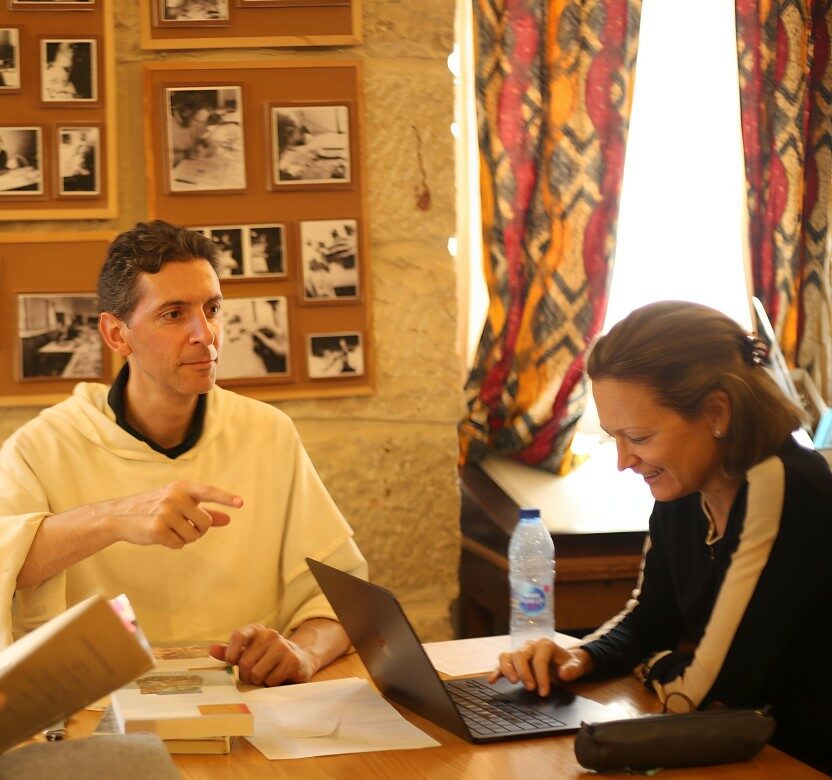For his first book translated in French, friar Anthony Giambrone, himself an exegete, returns to the context surrounding the French translation of his book: A Quest for historical Christ.
What inspired you to write this book?
“The book is actually a collection of fifteen different papers that I was invited to deliver at various conferences. At a certain point, it became clear that a more or less coherent body of work was emerging and an editor suggested that I gather the texts together under one cover.
Regarding the specific topic of the historical Jesus, this is something that I have thought about and worked on fairly intensively since my days as a doctoral student. I was a graduate assistant of the late John P. Meier, an indisputable giant in the field. I learned a great deal working with him, but I was also not entirely satisfied with his approach. Many of the basic orientations that I explore in the book began percolating and taking shape as I first worked my way through Fr. Meier’s project.”
How did the translation of the book into French come about?
“Fr. Renaud Silly, OP, engineered the whole operation. After he discovered the book and began using it in the classroom, he determined that it would be useful to present to a broader Francophone public. For a variety of reasons the theological and exegetical discussions in the Anglophone world have taken different directions than the conversation in France, which made the translation both a compelling project, and also a real conceptual and cultural challenge. Regis Burnet, who was generous enough to pen the preface, did a nice job trying to ease and explain the jolt that some of my exegetical (not doctrinal) heterodoxies might elicit for certain readers: “pour le lecteur francophone… une lecture déroutante” is his opening phrase. My own particular English style, which Fr. Renaud dubbed something like “decadent baroque satire,” certainly posed another challenge; but he creatively assembled a team of gifted translators who worked together under his personal direction. The contract with Les Belles Lettres was also entirely his doing, as is the lecture tour that he has now orchestrated for me in the beginning of December to publicize the work in France.”
What do you hope readers will take away from your book?
“My explicit intention with the book was to think more deeply about how to connect serious theological reflection with the so-called “Quest for the Historical Jesus”. As such, I try to plant my reflections in an admittedly unusual place, positioned—like the Ecole itself—at a balanced midpoint between the academy and the Church.”
“Such a hermeneutical move undoubtedly looks retrograde and downright benighted for more empirically minded historiographical spirits; but my interest is not in cheap apologetics. Ironically, the book even appears to me, far from reactionary, to stand in a certain demonstrable continuity with prior work in the field, beginning with major figures like D. F. Strauss and Albert Schweitzer, whose massive interventions were hardly the disengaged exercise of some pure Enlightenment ideal of “objective” secular reason, but instead in each case carried open and profound theological freight. So, on the one side, I want to legitimate a more open recognition of what the modern of study of Jesus actually is and always has been—for both good and ill; while on the other side, I also hope to carve out space for a variety of more or less innovative proposals that I think can move us in some promising new directions.”
“A lot of Christians have fear of or disaffection for this stuff. Yet, Christology, hence our very Christian confession, is impoverished and even irresponsible without an earnest historical engagement, I want to say. I am not trying to convince unbelievers by some pretended historical demonstrations, however. But I do mean to indicate that faith in Jesus’ divinity entails a robust trust in our historical sources, and that this trust, in truth, demands no sacrificium intellectus, but instead invites a very stimulating and sophisticated engagement of the human mind.”
 A Quest for the Historical Christ now available in French.
A Quest for the Historical Christ now available in French.
Some future writing plans?
“Too many. I have another manuscript that is due to appear next year: Common Doctor, Uncommon Exegesis: Reading Scripture in the School of Thomas Aquinas. Behind that comes a Greek-English edition of the Apologists. Lots of articles and essays in the meantime and a couple more books in the works.”
For Christmas, gift a copy of La Quête du Christ historique at Les Belles Lettres.

